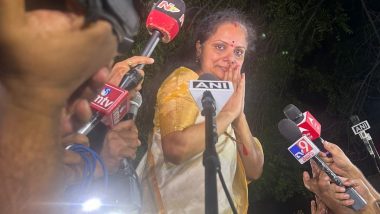
The Supreme Court’s order came as a relief for Kavitha, who had been in custody since March 15, 2024, when she was first arrested by the Enforcement Directorate (ED) at her residence in Hyderabad. The Central Bureau of Investigation (CBI) had subsequently taken her into custody on April 11, 2024, while she was still in Tihar Jail.
Kavitha's legal team had repeatedly sought bail, but the Delhi High Court had denied her requests, citing her as a key conspirator in the alleged criminal conspiracy surrounding the now-defunct Delhi Excise Policy 2021-22. The policy, which was meant to streamline liquor sales in the national capital, was scrapped following allegations of irregularities and corruption. The Supreme Court’s decision overturned the earlier High Court ruling, noting that Kavitha had already been in custody for a significant period and that the investigations against her were complete.
Upon granting bail, the court required Kavitha to submit a personal bond of ₹10 lakh for each of the two cases she was involved in, along with sureties. The conditions of her release are expected to include regular appearances before the investigative agencies and restrictions on leaving the country without prior permission.
Kavitha has consistently denied the charges against her, maintaining that the case is politically motivated. Her release marks a significant moment in the ongoing investigations into the Delhi excise policy, which have already seen several arrests and a high level of scrutiny from both the media and the public.
The excise policy case has been a major political controversy, with the BRS leader's arrest drawing considerable attention due to her family's political influence in Telangana. As the legal proceedings continue, the case remains a key topic of discussion in both legal and political circles.
This latest development is likely to have broader implications for the ongoing investigation and the political landscape in Telangana and beyond.
